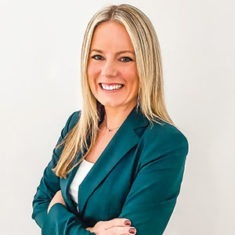How the gig economy is impacting the events industry
In honor of Labor Day, Smart Meetings chatted with Tracy Judge, founder and CEO of Soundings, to get the latest scoop on the trends currently emerging within the freelance meeting planner gig economy.

Smart Meetings What are the trends of freelance meeting planner gig workers?
Tracy Judge Freelance meeting planner gig workers are increasingly in demand, particularly those with specialized skills. The marketplace has seen a significant shift towards hiring senior roles that require specific vertical experience and technological expertise. This includes roles like event technology specialists, event registration specialists, meeting and event planners, event marketing roles, and marketing specialists.
There is also a notable trend toward hiring locally for events, both internationally and within the destination country. This is driven by sustainability concerns, cost efficiency and a focus on local community support and cultural preservation.
Additionally, the freelance marketplace is evolving with regulatory changes aimed at better worker classification compliance and providing freelancers with access to benefits like health insurance and retirement plans.
SM What types of freelance meeting planner roles are most in demand?
TJ The most in-demand roles in 2023 and 2024 include:
- Event Technology Specialists: Experts in technology used to host and manage events, both in-person and virtual.
- Event Registration Specialists: Professionals focused on managing the registration process for attendees.
- Meeting & Event Planners: Coordinators who oversee the overall planning and execution of events.
- Event Marketing Roles: Specialists who promote and market events to target audiences.
- Marketing Specialists: Those with expertise in broader marketing strategies, particularly those that integrate with event promotion and execution.
TJ These roles are highly sought after due to the increasing complexity of events and the integration of digital and marketing strategies.
SM What are the best practices for managing freelance meeting planners?
When managing freelance meeting planners, best practices include:
- Set clear expectations: Define roles, deliverables, and deadlines upfront to ensure everyone is on the same page.
- Communicate openly: Keep lines of communication open with regular check-ins and updates. Use tools like Slack or Trello to stay organized.
- Equip with the right tools: Provide freelancers with all necessary resources and information for success.
- Encourage collaboration: Involve freelancers in team meetings and decision-making to foster a sense of belonging and ownership.
- Offer flexibility: Give freelancers the freedom to manage their time while meeting project goals. Respect their need for balance.
- Build trust and a positive culture: Trust freelancers to deliver quality work, avoid micromanaging, and show appreciation for their contributions. Recognize achievements and create a supportive environment.
- Document and share processes: Provide clear onboarding and process documentation to help freelancers hit the ground running.
SM What are the legal and financial limitations planners need to keep in mind when hiring freelance staff?
TJ When hiring freelance staff, planners need to be aware of several legal and financial considerations:
- Worker Classification: Proper classification of workers is crucial to avoid penalties. Misclassifying employees as freelancers can lead to significant legal and financial repercussions.
- Regulatory Compliance: Stay updated on local and international labor laws and regulations, especially those concerning freelance and gig workers. Ensure compliance with minimum wage requirements and overtime regulations to avoid legal issues and maintain fair compensation practices.
- Contracts and Agreements: Ensure that all freelancers have signed clear contracts outlining the scope of work, payment terms, and confidentiality agreements.
- Tax Implications: Understand the tax obligations associated with hiring freelancers, which can vary by region and country. Ensure that proper documentation, such as tax forms, is in place.
- Insurance and Benefits: While not typically required, offering optional benefits like insurance can make freelance positions more attractive and ensure freelancers are protected.
SM Anything else you think would be important for our readers to know?
TJ Here are some interesting updates on the freelance economy/workforce in general:
- Corporate Adoption of Freelance Talent: More corporations are adopting agile talent models that integrate freelance talent with full-time employees. This approach allows companies to leverage specialized skills for specific projects and provides the flexibility to scale their workforce according to business needs, enhancing overall productivity and innovation.
- Increased Demand for Specialized Skills: As businesses become more reliant on technology and digital innovation, there’s a growing demand for freelancers with specialized skills, particularly as AI continues to impact how we work.
- Remote Work Normalization: The remote work culture has opened up new opportunities, enabling freelancers to find projects that match their skills and interests, regardless of location.
- Niche Skills and Enhanced Skill Matching: Freelance platforms targeting niche markets are becoming more popular as they make it easier to find the right talent for specialized projects.
- Increased Focus on Education and Upskilling for Freelancers: Freelancers are increasingly investing in education and upskilling to stay competitive and expand their expertise as the industry evolves.
- ·Regulatory Changes and Benefits for Freelancers: In response to the growing freelance workforce, increased regulations have been implemented, and governments are focusing more on worker classification compliance. For example, the DOL and IRS have partnered to improve compliance with laws and regulations. This provides better protections and benefits to freelancers, including access to health insurance, retirement plans, and other social benefits, making freelancing a more viable and secure career option. We changed our business model at the end of 2022 to ensure worker classification compliance, and now provide many of these benefits.
By understanding these trends and adapting to the evolving landscape, both freelancers and organizations can better navigate the future of work in the events and meetings industry.




